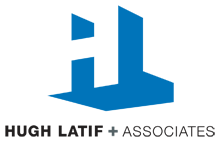One of the most common things you hear people say today is that they are busy. I could not do this or that because I was busy. Sorry I forgot this; I was busy. I haven’t seen you in ages; I’ve been so busy. I want to find time for the things I like doing, but I’m so busy. But is being busy the same thing as being productive?
Andy Sherwood is one of my very good friends whom I have known for over 35 years. He was my Training Manager when I was a young Business Reporter at Dun & Bradstreet. He later went on to own and manage the largest priority management company in Canada, training thousands of executives and managers in organization skills. Over the years, we kept in touch and to this day, I go to Andy's one-day seminar every few years to get a refresher and be reminded of the importance of being organized. Andy's method saves on average one hour a day. His course provides you with a truly comprehensive method for efficient organization.
I have selected a handful of key steps from his vast tool kit to share with you. Following them is a recipe for being productive:
Clean Desk
A clean desk invites productivity, while a messy desk is discouraging. You should make an effort to start and end your day with a tidy desk. If it gets a bit unkempt during the day, that’s okay. Although we each work differently, we can all take five minutes at the end of the day to straighten our desks before leaving.
Limbo
Our email inbox is like the old in-basket and should be empty by the end of the day. Keeping all emails in the inbox forces you to search through hundreds of emails when you need something. Instead, have files for every subject (customers, suppliers, team members, etc.) so that you can clean your inbox throughout the day.
When you open an email, choose one of the 4 Ds:
- Delete it.
- Delegate it.
- Do it now or file it.
- Defer it.
If you have to defer it, make sure you convert it into a task to be done at a later date. Do not leave it there in limbo, that uncertain period spent awaiting a decision or resolution.
All Your To-Dos in One Place
Many email servers are designed to make it easy for you to organize your to-do list. Outlook, for example, lets you transform emails and actions into tasks before putting them on your “to do bar” for a specific day or time. For example, call Mary re seminar Tuesday 14th; provide Peter with the sales results Thursday morning; follow-up with Prospect AAA Thursday 20th in the afternoon. When items are left in your inbox, there is a risk of forgetting them. A bonus of keeping your to-dos organized is less stress for you, as you don't have to think about calling Prospect AAA or worrying about forgetting to provide Peter with the sales results. What a relief to know that although these items are out of sight and mind, they’re never forgotten.
Live in Your Calendar
Do not live in your email inbox. Live in your calendar so you can focus on the things that have to be done today. Living in your inbox will make you react to what is “thrown” at you, while living in your calendar gives you control over your time by helping you make appropriate choices.
Important vs. Urgent
Learn to differentiate between the important and the urgent. Review the following simple figure:

Checking your email every time you receive one is distracting. Not all emails are urgent and not all emails are important. Besides, the interruptions hinder not only your productivity but your creativity too. Check your email at specific times during the day to maintain your focus and concentration. This will let you effectively handle the urgent, important, and unimportant.
Who, What, When (WWW)
Always know who is to do what by when. This simple rule allows you to delegate effectively to others while never missing a deadline, whether you have to do the work yourself or receive it from others.
Out at Five (OA5)
Out at five is a healthy objective to shoot for whether you are an owner, manager, or employee. You work to live not live to work. Time off allows you to re-charge your batteries, doing what you want to do or just simply relaxing.
These seven rules can make a significant difference in productivity levels and reduce the stress brought on by our 24/7 connect-ability. We should use technology to our advantage rather than letting it control our lives. Consider this: time is rare commodity. On average, we are given roughly 85 years (or 31,000 days) to live. We should choose wisely what to do with our time. Don’t give this privilege to someone else.
Whether you are aspiring to be an effective manager or looking for self-development tools, my new book Maverick Leadership is one of the best investments you can make. It provides advice for developing the leadership, financial, and operational skills to run a successful business. To view a short video and read a chapter, click here!
To visit Andy's website, click here!


